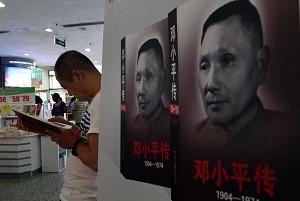The Chinese government is set to distribute textbooks to be used by local officials who will undergo Chinese culture education in September to complement their ideological education, enhance their skills, and provide support for the country’s anti-graft campaign, the Global Times reported..
The Chinese Academy of Governance said on June 15, Monday, that the first-of-its-kind textbook, written by the academy and the China Sino Culture and Arts Center, will be handed out to local governance academies for local officials who will undergo training by batches.
"The introduction of the textbooks is a response to the central government's efforts to promote traditional Chinese culture, as China has been lacking in education in this field in the past years," Xu Hongwu, chief editor of the textbooks, said.
"How to effectively impart the knowledge and encourage officials to apply theories will be the next challenge," Wu was quoted as saying.
Xu said that aside from classic quotations, interpretation and questions for discussion, the textbooks also contain instructions on human resources, military strategies, law enforcement and anti-corruption--all are expected to boost the local officials' knowledge of traditional culture and improve their decision-making and governance capabilities.
The move was inspired by President Xi Jinping's speech at an international seminar in Sept. 2014, which marked the 2,565th anniversary of Confucius' birth. He said that culture is the soul of a nation and urged for mutual understanding between people and their culture.
Xi also expressed his concerns about a decision to remove classic Chinese poems and essays from textbooks when he spoke at Beijing Normal University on Sept. 9 last year.
"Some essential ideas in traditional Chinese culture are consistent with the current anti-graft campaign, which will provide useful insights," Qi Xingfa, an associate professor at the Department of Political Science of East China Normal University, told the Global Times.
Qi, however, said that education on anti-graft may only have a limited effect, as the campaign would depend more on restrictions to officials' authority than cultivating the morals of public officials.
"Traditional Chinese culture education will supplement ideological education, as some classical creeds could help officials better understand politics, such as the rise and fall of power, and strengthen their self-discipline," Wang Zhanyang, a professor at the Central Institute of Socialism, said.
Stressing that some theories are vague and general, which are not applicable to the workplace, Wang said: "We should still insist on Marxism, democracy and the rule of law."



























